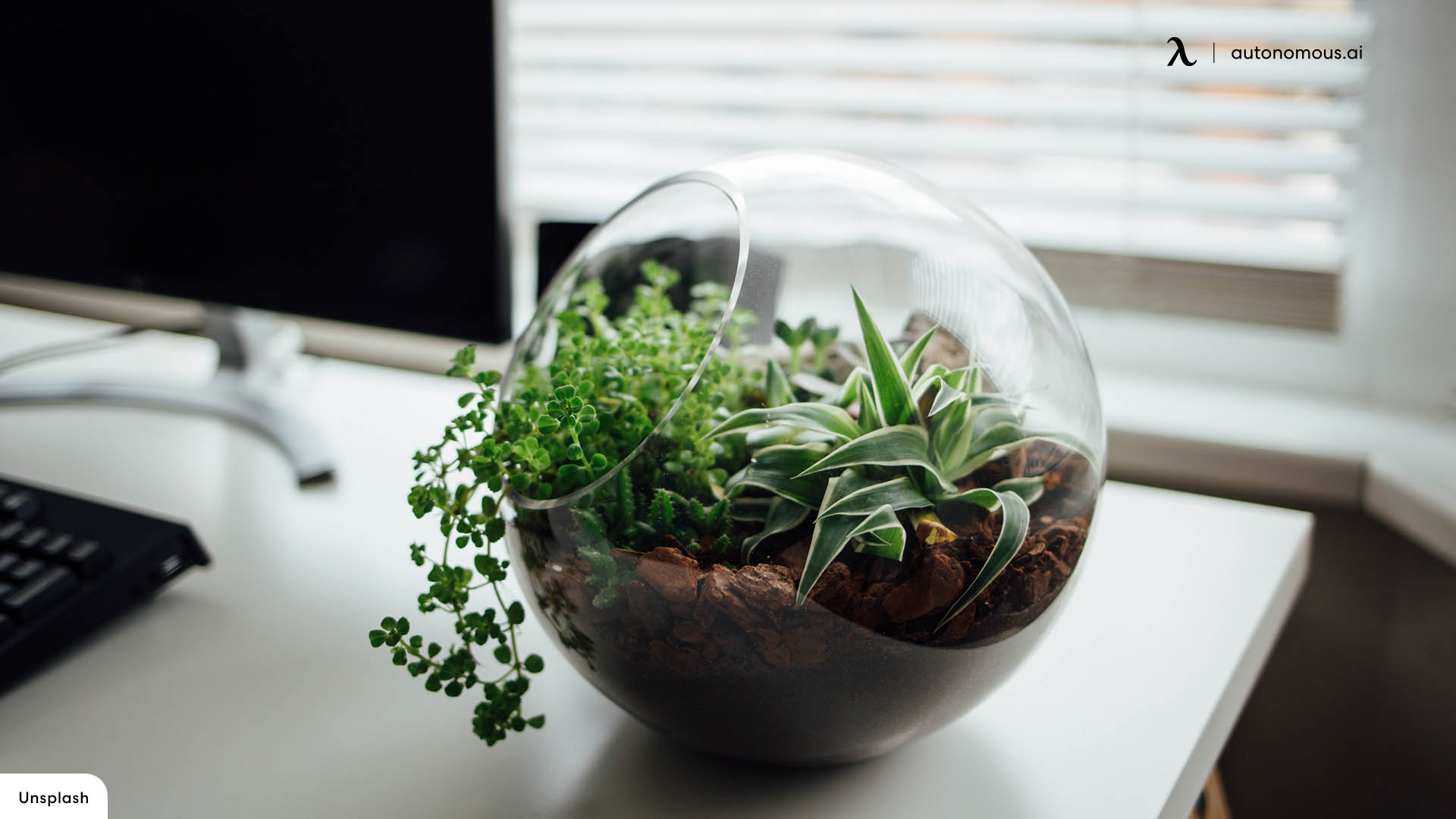
The Best Office Cubicle Plants to Brighten Your Workday
Table of Contents
Bringing greenery into your workspace has never been easier. Whether you’re searching for plants that can survive in a cubicle with no sun or looking for creative ways to display them, office plants can transform your work environment. This guide explores the benefits of office plants, top low-maintenance options, and practical tips for arrangement and care to help you brighten your workday.
The Benefits of Having Plants in the Office
Office cubicle plants are more than just a decorative touch; they offer a host of benefits that improve your physical and mental well-being.
Improved Air Quality
Plants naturally filter toxins and release oxygen, creating a healthier workspace. Varieties like pothos and peace lilies are especially effective at removing airborne pollutants.
Reduced Stress
Studies show that having greenery around can lower stress levels and improve mood. A small plant on your desk can provide a calming visual break from work tasks.
Enhanced Productivity
Adding plants to your workspace can boost focus and creativity. Greenery has been linked to increased concentration and better problem-solving skills.
Noise Reduction
Plants can absorb sound, reducing noise distractions in a busy office. Larger varieties or clusters of smaller plants are particularly effective.
Improved Aesthetics
A touch of greenery makes your cubicle feel more inviting and personal. This can lead to a greater sense of satisfaction and connection to your workspace.
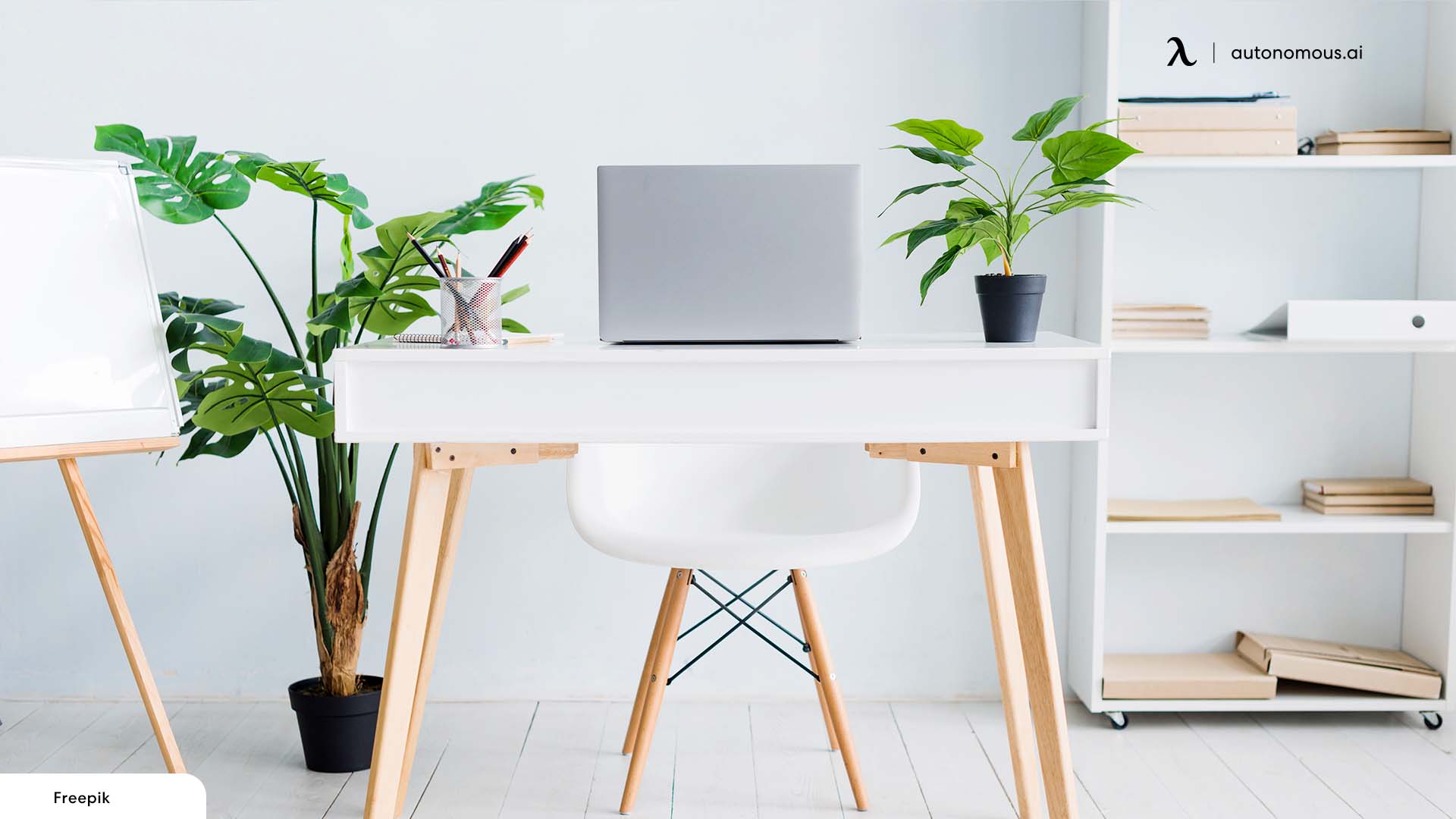
Top 10 Low-Maintenance Office Cubicle Plants
Adding greenery to your office cubicle decor doesn’t have to be high-maintenance. These office cubicle plants are resilient, adaptable, and perfect for brightening your workspace, even in low-light conditions.
1. Snake Plant (Sansevieria)
Snake plants, also called “Mother-in-Law’s Tongue,” are known for their upright, sword-like leaves and extreme resilience. It is one of the best plants for cubicles with no sun. They thrive in low light and need watering only every 2–3 weeks. Their air-purifying qualities make them perfect for removing toxins like formaldehyde from office air. Compact and striking, they fit seamlessly into any workspace.
2. Pothos
Pothos is a vining plant with heart-shaped leaves, ideal for low-maintenance care. It tolerates low light but grows quickly in moderate light conditions. Its air-purifying properties and elegant trailing vines make it a versatile choice. Place pothos in a hanging planter or let it trail across your desk for a lush look.
3. ZZ Plant (Zamioculcas zamiifolia)
The ZZ plant is nearly indestructible, tolerating neglect, low light, and infrequent watering. Its glossy, dark green leaves store water in rhizomes, making it drought-tolerant. This feng shui office plant is an excellent choice for cubicles with no direct sunlight or for those new to plant care.
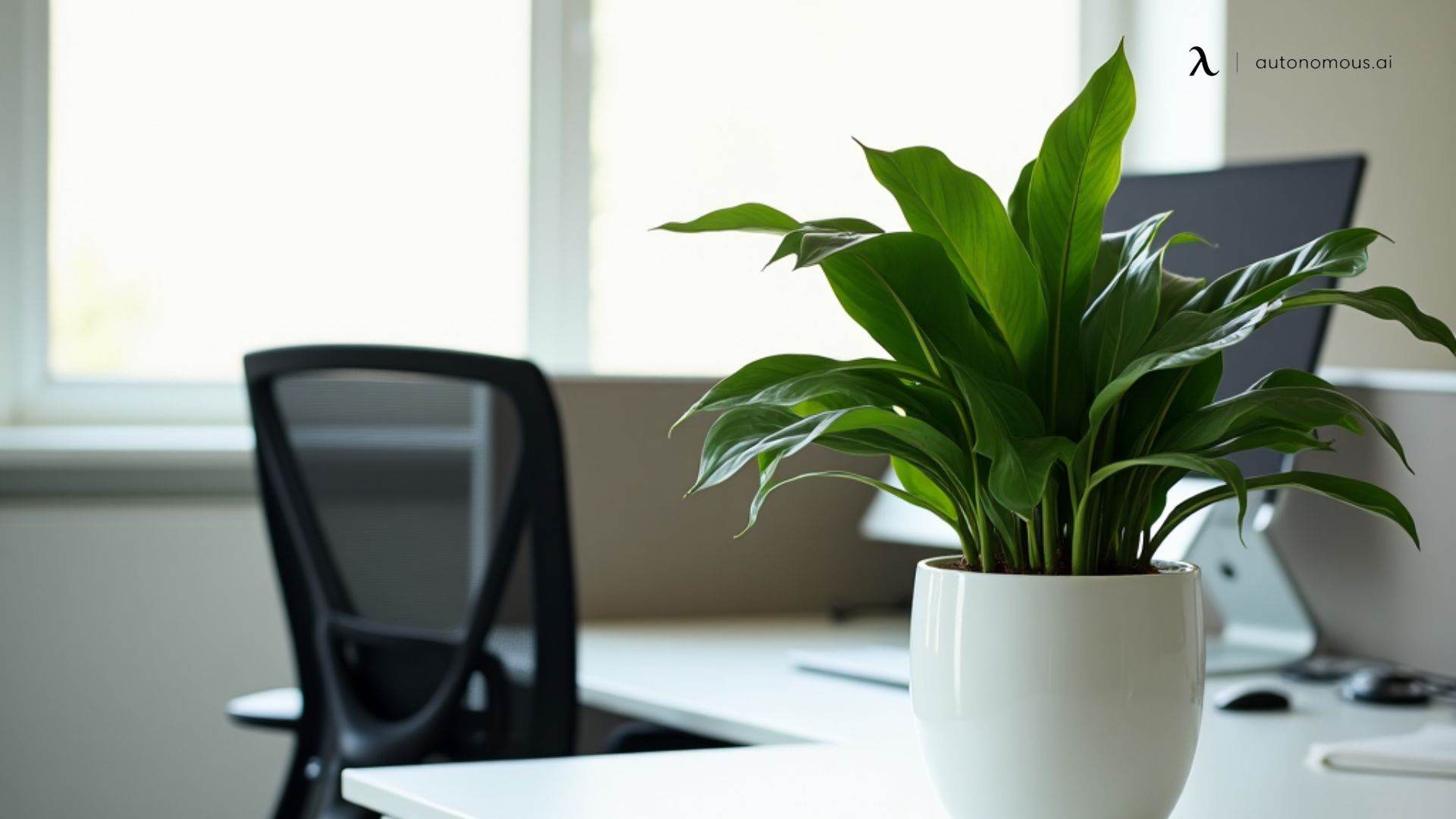
4. Peace Lily
Known for its stunning white blooms, the peace lily adds elegance to any cubicle. It thrives in low to medium light and requires the soil to stay slightly moist. In addition to its beauty, the peace lily is one of the best plants for purifying indoor air, making your workspace healthier and more inviting.
5. Spider Plant
The spider plant is a hardy, fast-growing option that produces “pups,” or small offshoots, that can be propagated into new plants. It thrives in medium to bright light but can adapt to low-light environments. Water weekly and allow the soil to dry out slightly between waterings for best results.
6. Succulents
This is another best plant for office cubicles for your consideration. Succulents are perfect for compact workspaces, as they come in a variety of shapes and sizes. They require bright indirect light and minimal water—only every 2–3 weeks. Popular options like jade plants and echeveria add a modern and stylish touch to your office desk.
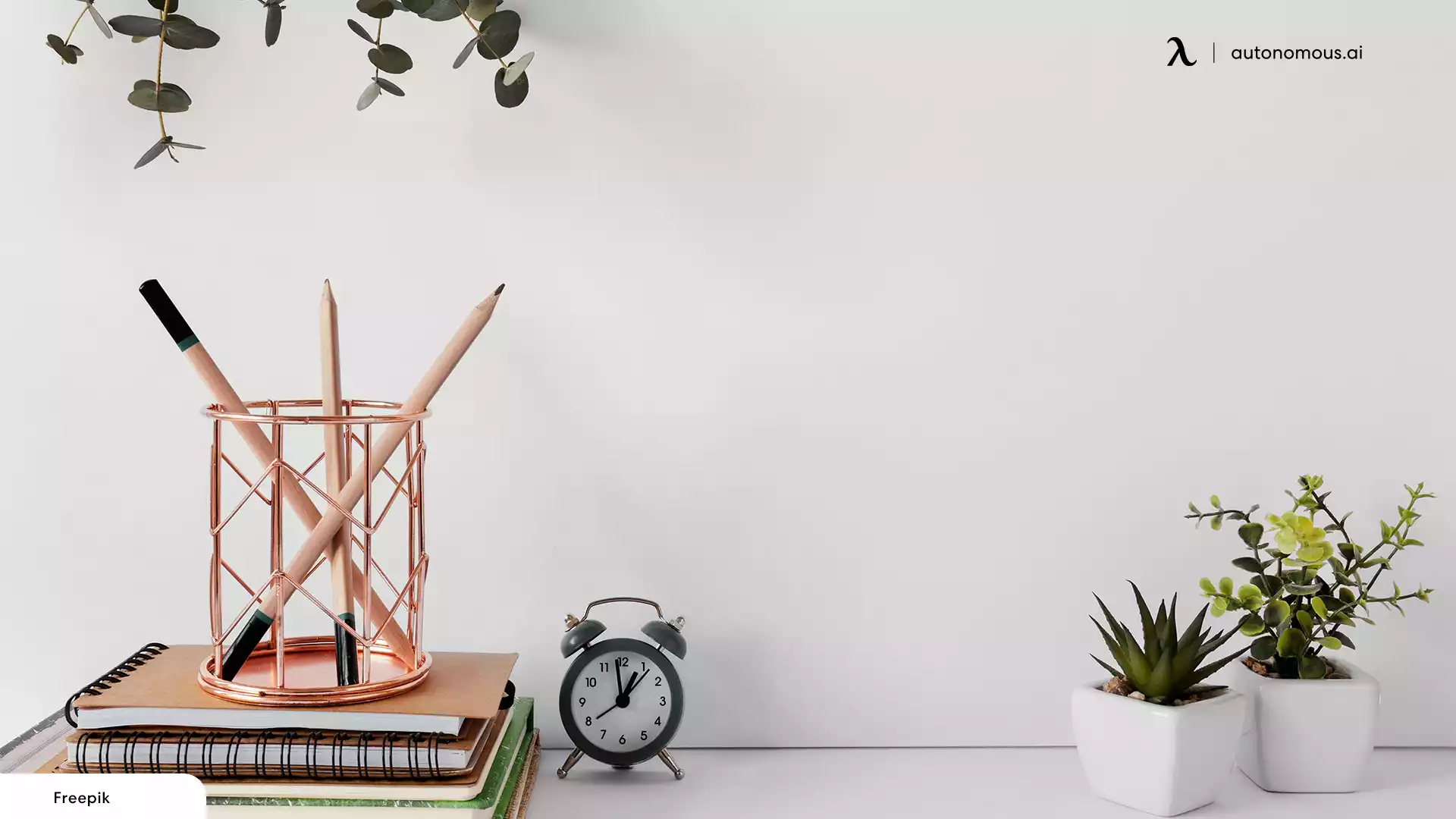
7. Air Plants (Tillandsia)
Air plants don’t need soil and are incredibly versatile for creative displays. They thrive in bright indirect light but can adapt to artificial light. Simply mist them weekly or soak them in water every two weeks. Display them in glass terrariums or suspend them from strings for a unique, floating effect.
8. Bamboo
Lucky bamboo is both decorative and easy to care for, growing in water or moist soil. It tolerates low light and is often associated with positive energy and good fortune. Keep bamboo in a glass vase with stones for a clean, elegant display that requires little maintenance.
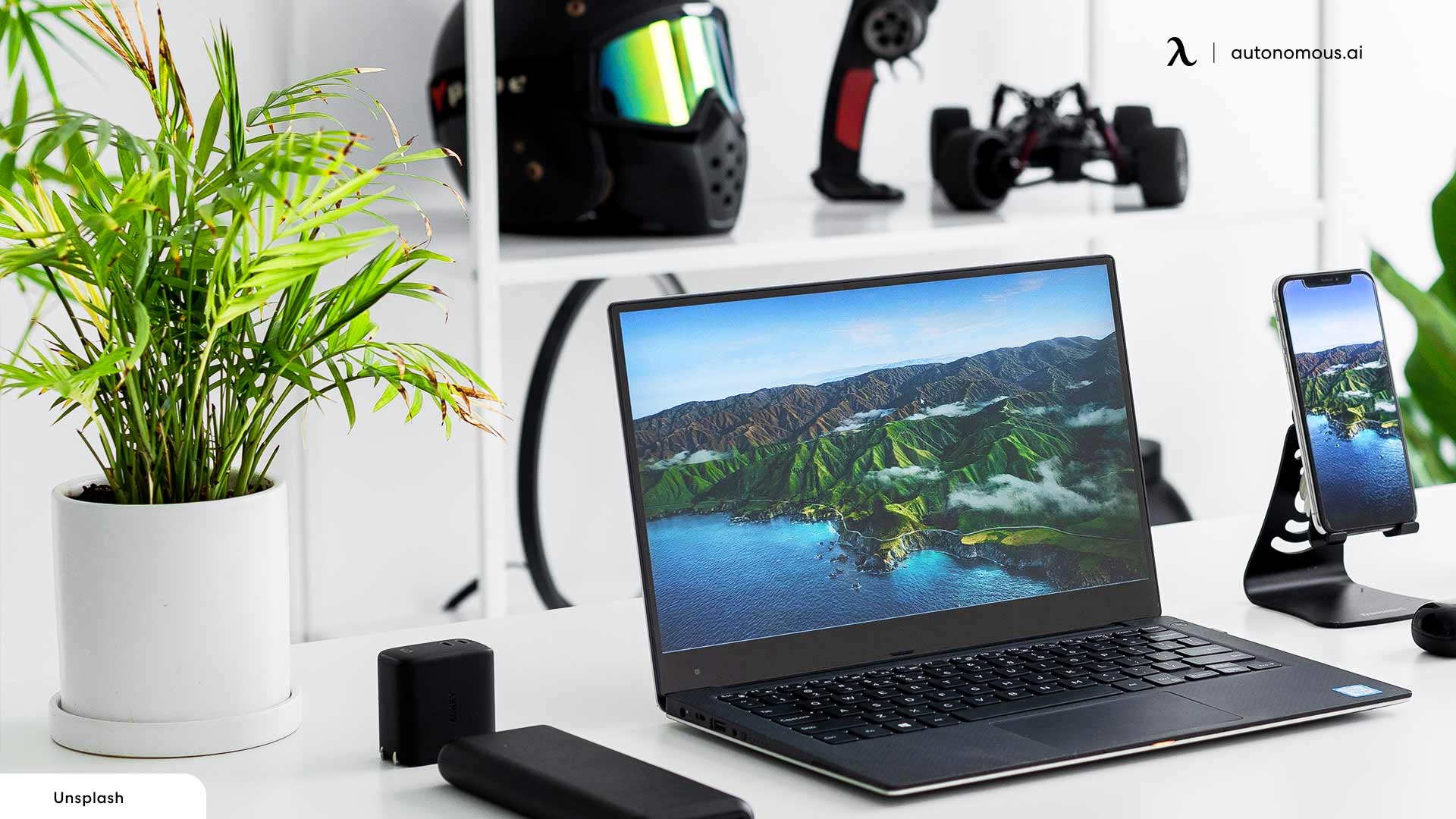
9. Calathea
Calathea plants feature vibrant, patterned leaves in shades of green, purple, and pink. They thrive in low to medium indirect light and prefer consistently moist soil. Although they benefit from higher humidity, they adapt well to typical office environments with regular misting.
10. Fittonia (Nerve Plant)
The Fittonia is a compact plant with striking veined leaves in colors like red, pink, and white. This best plant for office cubicles thrives in low to medium light and requires regular misting to maintain humidity. Its colorful foliage adds a lively and unique touch to your workspace.
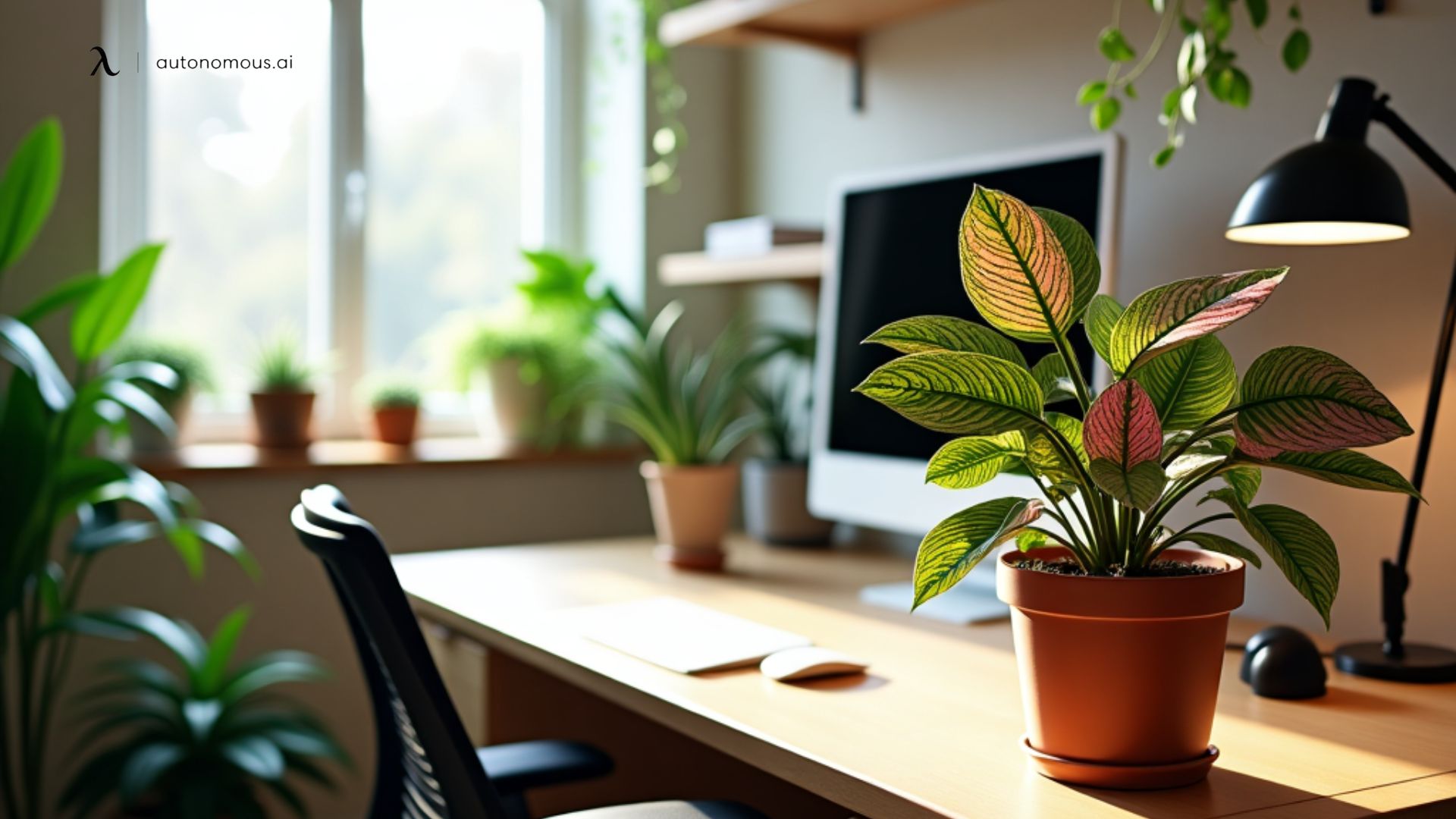
Creative Ways to Display Office Cubicle Plants
Adding plants to your cubicle decor is not just about functionality but also about creativity and personal expression. Thoughtful displays can elevate the aesthetic appeal of your workspace while maximizing limited space. Here are some innovative ways to showcase your office cubicle plants:
1. Hanging Planters
Hanging planters are a space-saving way to add greenery to your zen cubicle decor. They can be mounted on cubicle walls, hooks, or even from the ceiling if allowed. Trailing plants like pothos, ivy, or spider plants work particularly well in hanging displays, cascading down beautifully and softening the hard lines of an office environment.
Tip: Opt for lightweight, small planters to avoid overloading your walls or hooks. Macramé hangers can add a trendy, bohemian touch.
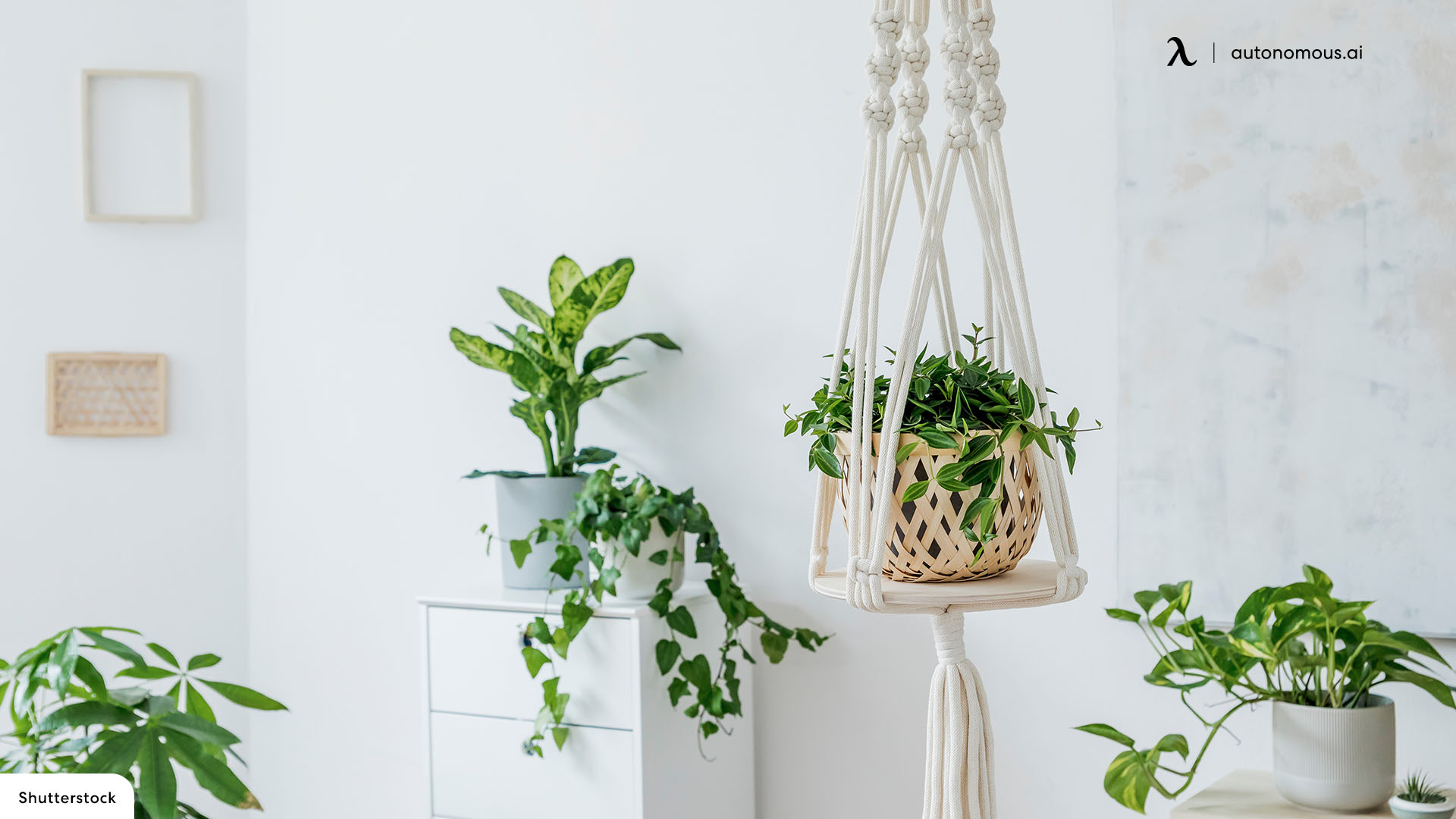
2. Magnetic Pots
Magnetic planters are ideal for cubicles with metal surfaces like filing cabinets, desk dividers, or shelving units. These small, sturdy pots are perfect for compact plants like succulents or air plants.
Tip: Use colorful magnetic pots to add pops of color to your workspace and group them for a visually cohesive arrangement.
3. Floating Shelves
Installing floating shelves in your cubicle can help you display multiple plants without taking up valuable desk space. These shelves can hold a mix of plants, books, or decor items for a stylish and functional display.
Tip: Place taller plants like snake plants on the top shelf and shorter ones like Fittonia or succulents on lower shelves to create a tiered effect.
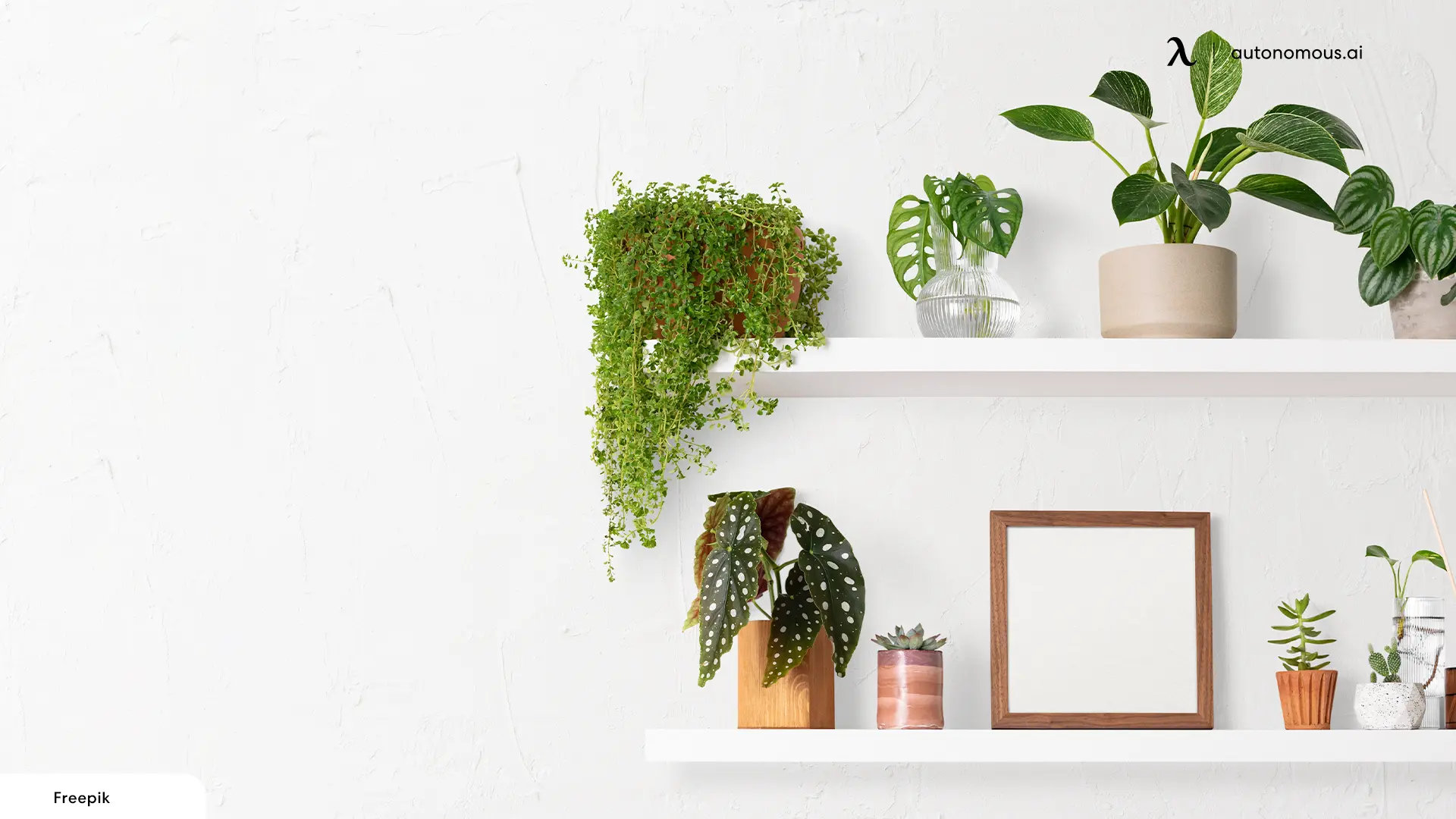
4. Desk Organizers with Built-in Planters
Some desk organizer ideas are designed with built-in planters, combining functionality and aesthetics. These dual-purpose items can hold your stationery while housing a small plant or two, such as a pothos or a bamboo stalk.
Tip: Choose a sleek, modern design that matches your cubicle’s decor for a unified look.
5. Repurposed Containers
Transform everyday items into unique plant holders. Old coffee mugs, mason jars, or even tin cans can be repurposed as creative planters. This approach adds a personal touch to your workspace and reduces waste.
Tip: Decorate these containers with paint, stickers, or washi tape to match your style.
6. Tiered Stands
Tiered plant stands or trays are great for displaying multiple plants in a compact space. By stacking plants vertically, you can create a lush, layered effect without cluttering your desk.
Tip: Use plants of varying heights and textures to add depth and interest to your display.
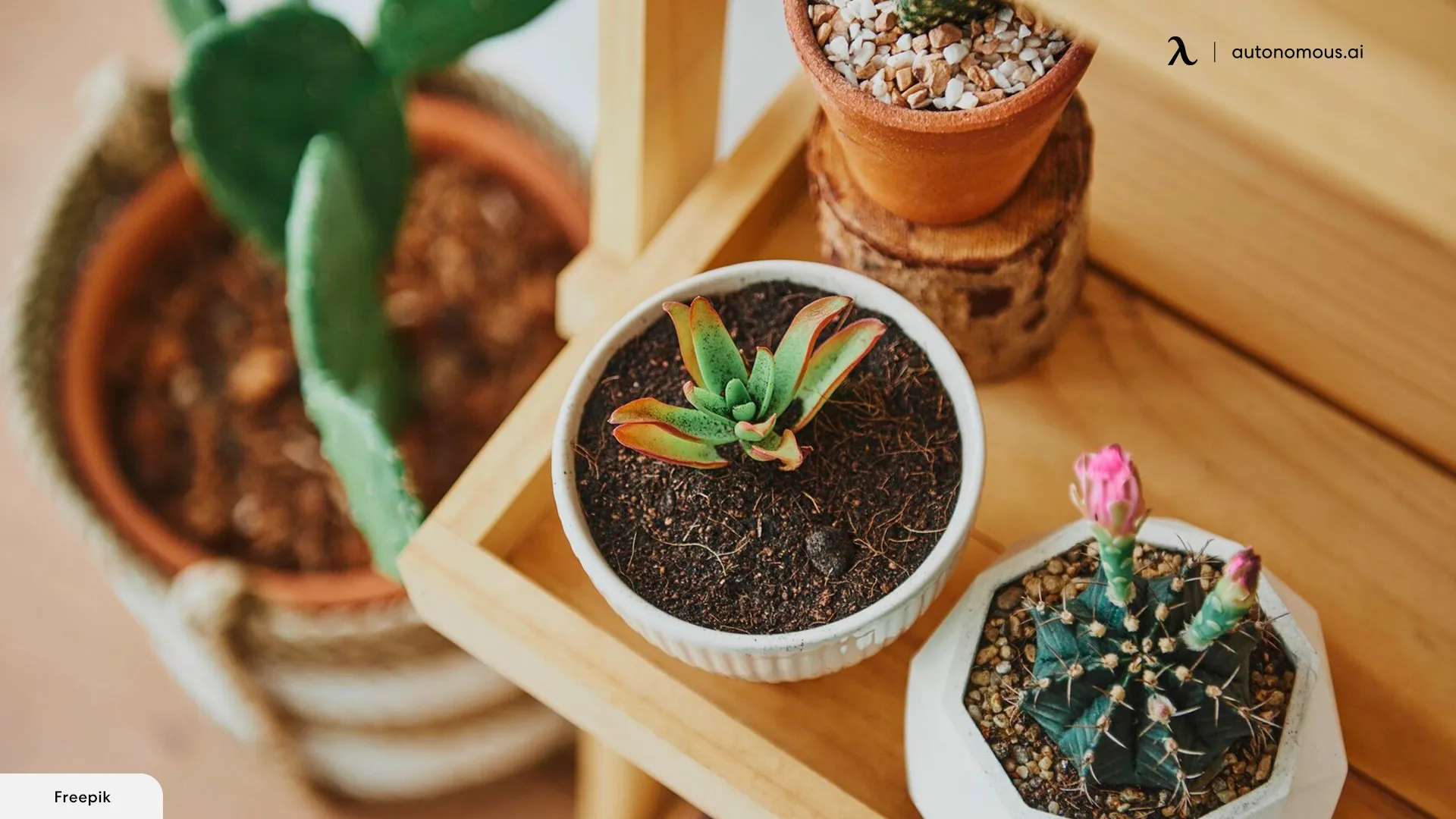
7. Terrariums
Terrariums are enclosed glass containers that house small plants like succulents or moss. They are self-contained, easy to maintain, and add a sophisticated touch to your cubicle.
Tip: Add decorative pebbles, sand, or small figurines to create a mini landscape inside the terrarium.
8. Wall-Mounted Displays
If your cubicle walls allow, consider mounting small pots or planters directly onto them. Wall-mounted displays free up desk space and bring plants closer to eye level, creating a calming visual break.
Tip: Use adhesive-backed planters if drilling isn’t an option in your workspace.
9. Planter Trays
Place multiple small plants on a decorative tray to create a cohesive display. This approach keeps plants organized and easy to move if you need to clean or rearrange your desk.
Tip: Include plants with different leaf shapes and colors for a visually dynamic arrangement.
10. Hanging from Cubicle Dividers
Utilize cubicle divider hooks to hang small baskets or containers filled with lightweight plants like air plants or bamboo. This vertical approach makes use of often-overlooked space.
Tip: Choose containers that match your workspace’s color scheme to maintain a cohesive look.
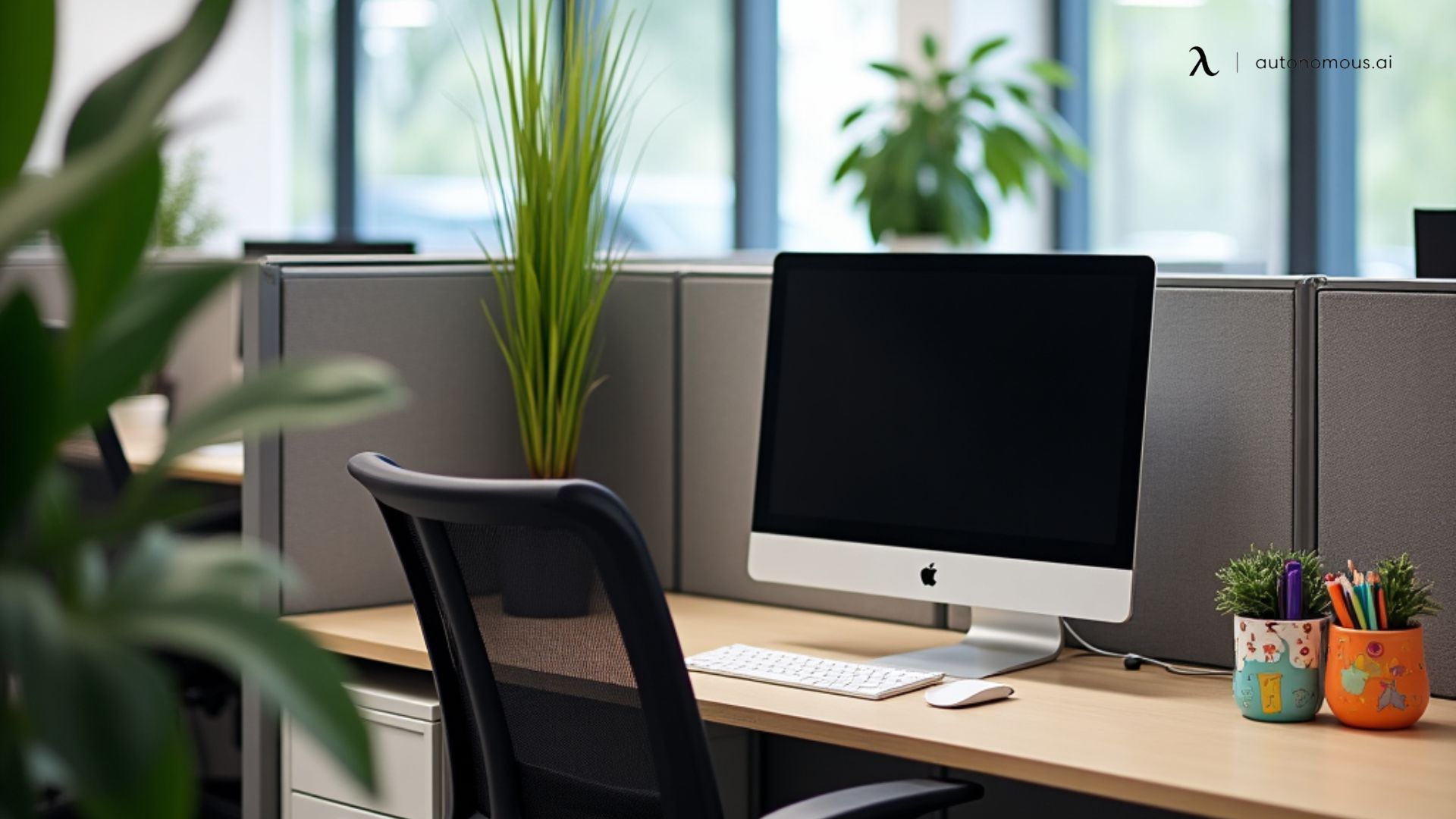
Plant Arrangement Ideas
Arranging your plants thoughtfully not only enhances their aesthetic appeal but also ensures they thrive. Here are detailed ideas for arranging your plants for a cubicle to create a balanced, visually appealing setup:
1. Symmetrical Balance
A symmetrical arrangement brings a sense of order and structure to your workspace. Place identical or similar-sized plants on opposite sides of your desk or shelf to create a balanced, harmonious look.
- Best Plants: Pair snake plants or bamboo stalks for a sleek, minimalist vibe.
- Tip: Use matching pots for a polished and cohesive appearance.
2. Cluster Grouping
Cluster several plants of different sizes, shapes, and colors to create a lush, garden-like effect. Grouping plants together also helps maintain humidity, which is beneficial for their growth.
- Best Plants: Combine taller plants like ZZ plants with smaller ones like succulents or Fittonia.
- Tip: Arrange taller plants at the back and shorter ones at the front for depth and visibility.
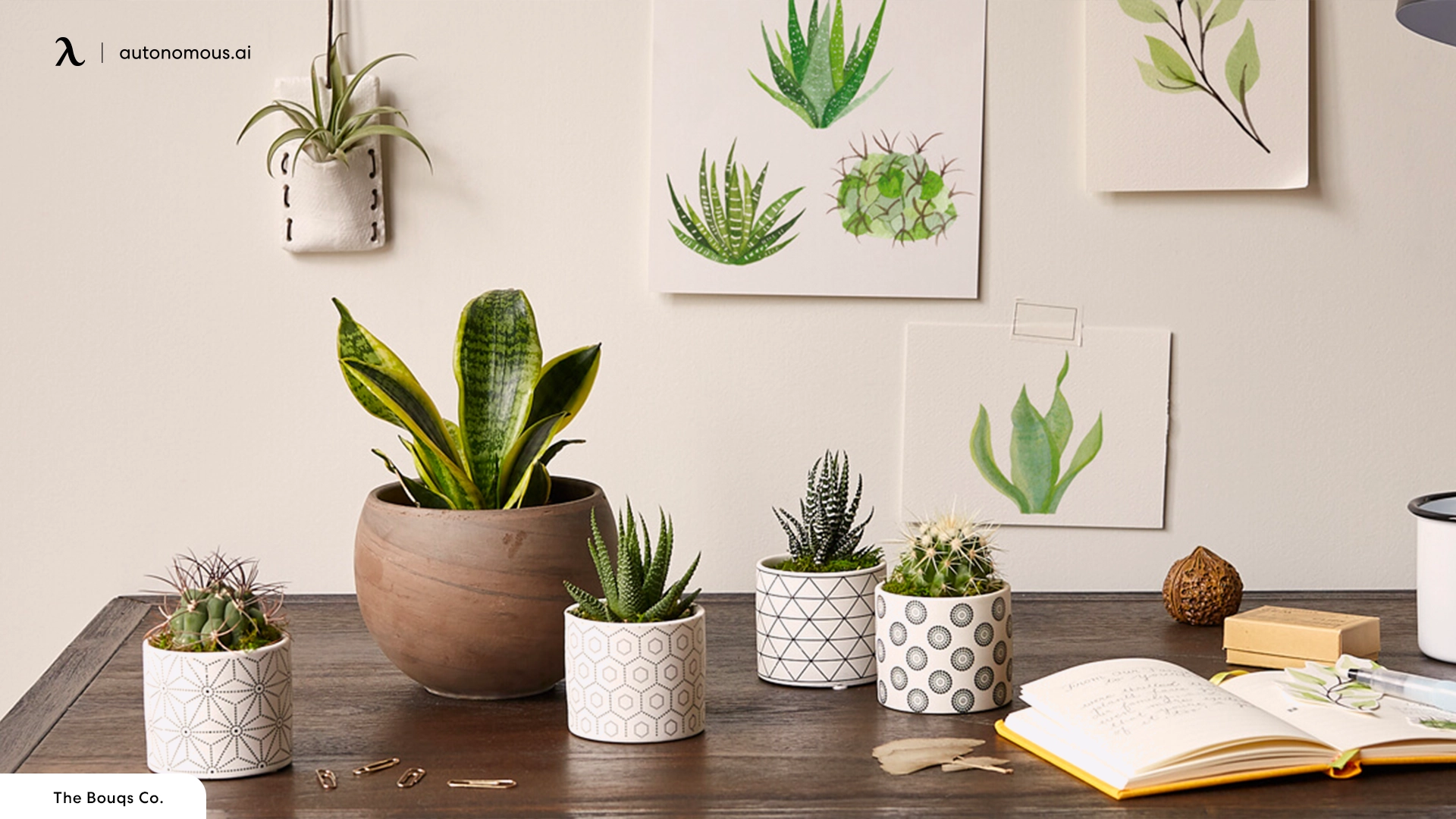
3. Linear Arrangements
A linear setup involves placing plants in a straight line along your desk, shelf, or windowsill. This arrangement works well in narrow spaces and gives a modern, clean look.
- Best Plants: Use plants with uniform heights, such as succulents or air plants, for consistency.
- Tip: Choose pots of varying colors or textures to add visual interest to a linear arrangement.
4. Seasonal Themes
Incorporate seasonal decor elements into your plant arrangements to refresh your workspace throughout the year. For example: Add mini pumpkins or fall-colored pots for autumn or use string lights or festive ornaments during the holiday season.
- Best Plants: Choose versatile plants like pothos or peace lilies that adapt well to various decorations.
- Tip: Keep decorations lightweight to avoid damaging your plants.
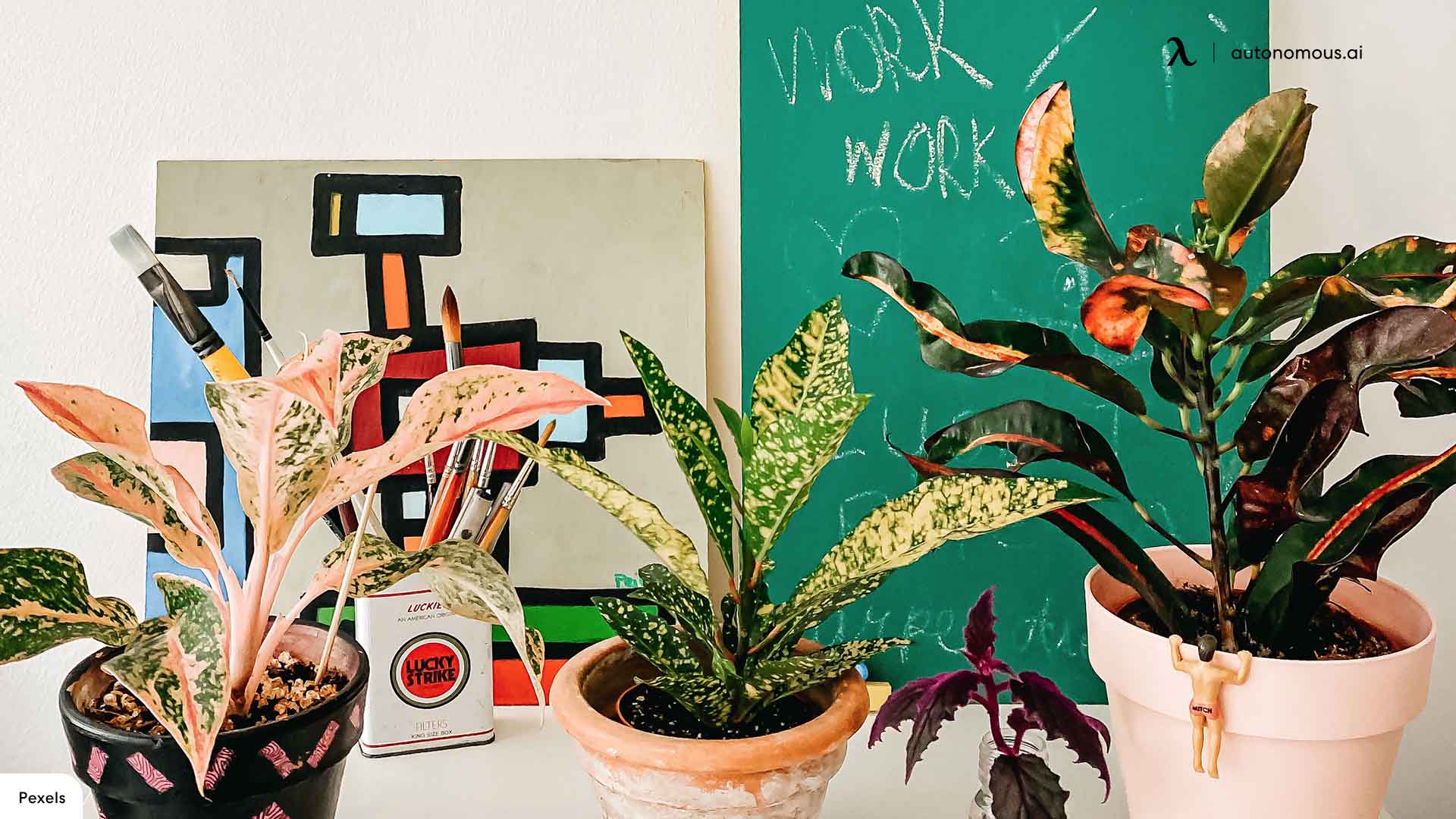
5. Tiered Displays
Create a tiered arrangement using plant stands, shelves, or stacking trays. This vertical approach makes a bold statement and maximizes the use of space in your cubicle.
- Best Plants: Use a mix of cascading plants like pothos and upright varieties like snake plants for visual contrast.
- Tip: Rotate your plants periodically to ensure even light exposure.
6. Themed Gardens
Curate a themed plant arrangement, such as a tropical corner or desert-inspired setup. Choose plants that fit the theme and use coordinating decor to enhance the aesthetic.
- Tropical Theme: Include calathea, bamboo, and peace lilies.
- Desert Theme: Use succulents, cacti, and terrariums filled with sand and pebbles.
7. Minimalist Designs
For a clean and uncluttered look, stick to one or two plants in simple, neutral-colored pots. This arrangement works best in smaller cubicles or for those who prefer a more streamlined workspace.
- Best Plants: Snake plants or ZZ plants in sleek, white or black pots.
- Tip: Position the plant where it can stand out as a focal point without overwhelming the desk.
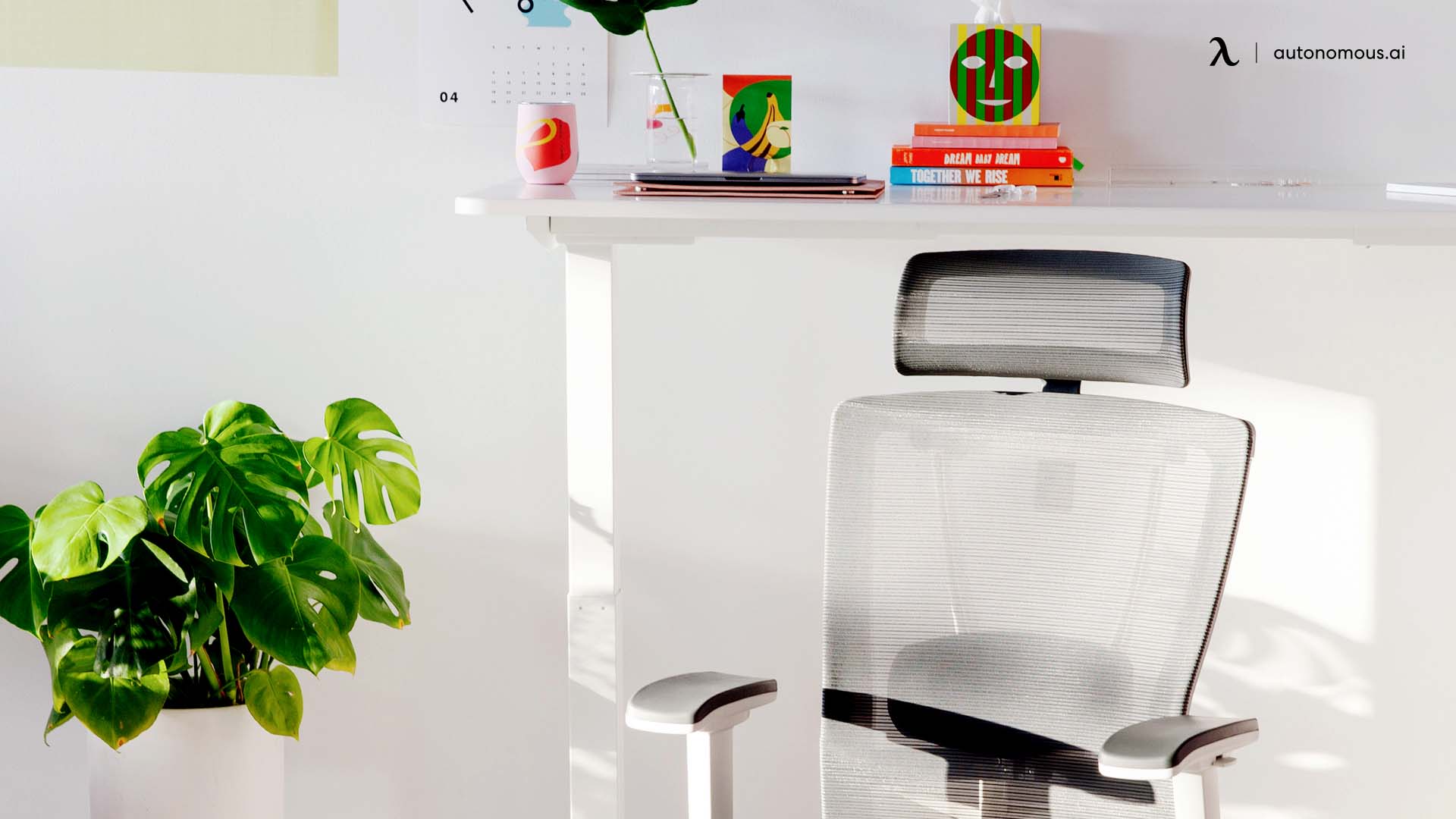
8. Vertical Gardens
If space is limited, consider creating a vertical garden by stacking plants on shelves or hanging them from walls. This approach adds greenery without taking up valuable desk space.
- Best Plants: Use lightweight plants like air plants or small pothos vines for easy hanging.
- Tip: Combine plants with different textures and leaf patterns for added depth.
9. Rotating Displays
Change your plant arrangements regularly to keep your workspace feeling fresh and dynamic. Rotating plants also ensures that all of them receive equal light exposure.
- Best Plants: Use easy-to-move plants like succulents, bamboo, or Fittonia.
- Tip: Use a small caddy or tray to make rearranging plants effortless.
10. Personal Touch
Incorporate personal touches into your plant arrangements, such as decorative pots that reflect your personality, family photos near your plants, or small figurines nestled among the greenery.
- Best Plants: Choose plants with unique features, like colorful Fittonia or quirky air plants.
- Tip: Keep personal elements balanced to avoid cluttering your workspace.
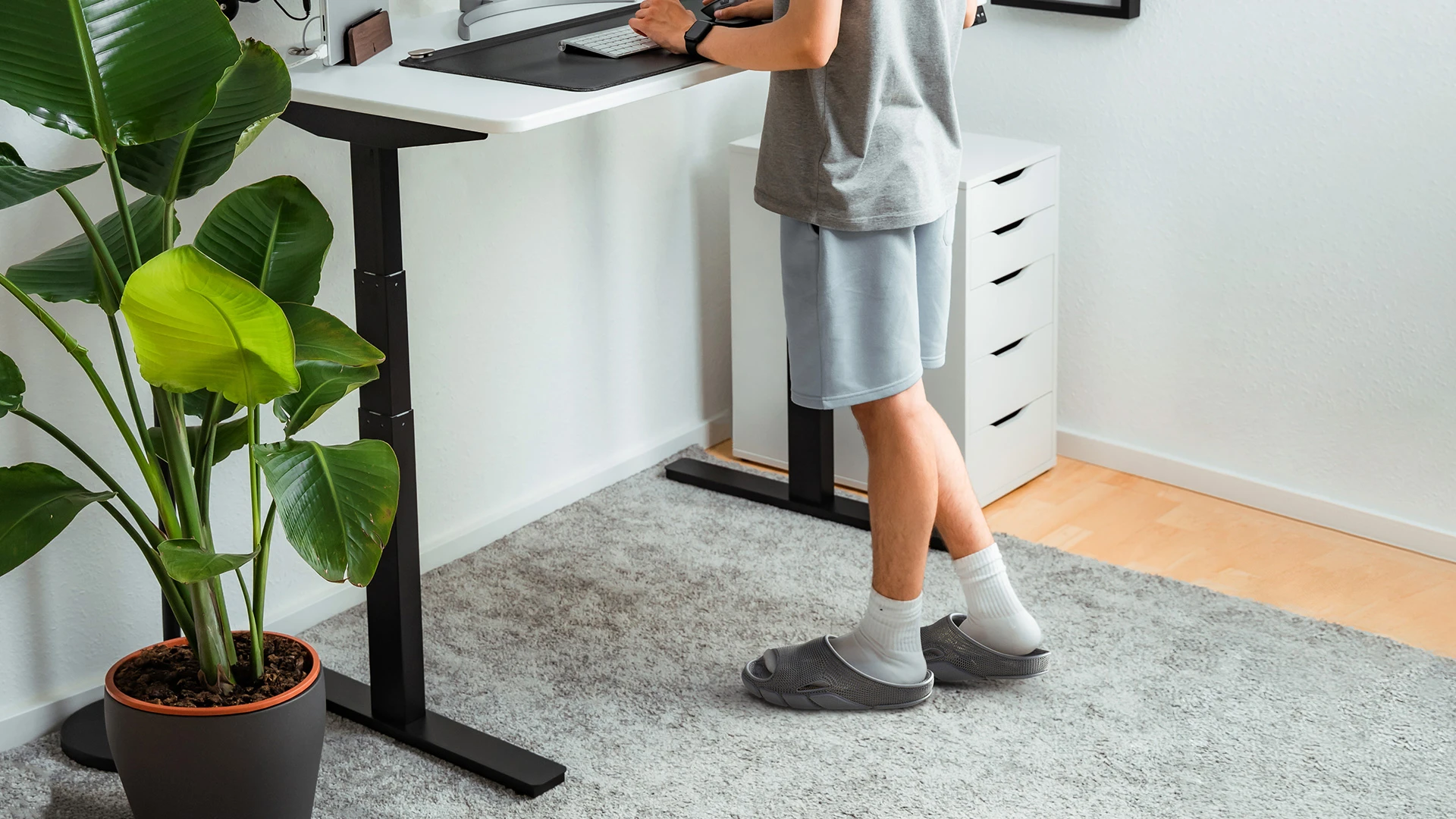
With these display and arrangement ideas, your office cubicle plants can become a stylish and functional part of your workspace, bringing life, color, and creativity to your daily routine.
Office Cubicle Plant Care Tips
Keeping your office cubicle plants healthy and vibrant requires proper care. Here are some essential tips:
- Understand Your Plant’s Needs: Research each plant’s light, water, and humidity requirements. For example: Snake plants thrive in low light, while succulents need bright, indirect sunlight.
- Avoid Overwatering: One of the most common mistakes is overwatering. Ensure pots have drainage holes, and let the soil dry out between waterings for most plants.
- Clean the Leaves: Dust can accumulate on leaves, blocking sunlight and reducing photosynthesis. Wipe them gently with a damp cloth.
- Rotate Your Plants: Turn your plants occasionally so all sides receive light and grow evenly.
- Monitor for Pests: Check for signs of pests like spider mites or aphids. Use insecticidal soap or neem oil if necessary.
- Fertilize Sparingly: Feed your plants with a diluted fertilizer once a month during their growing season (spring and summer).
- Adjust for Seasons: Plants may require less water and no fertilizer during the winter when growth slows down.
Summary
Adding plants for a cubicle isn’t just about aesthetics—it’s about creating a workspace that inspires and energizes you. Whether you choose hardy snake plants, air-purifying pothos, or quirky succulents, a touch of greenery can transform your workday. Follow this guide to select, display, and care for your plants, even in a cubicle with no sun!
Get exclusive rewards
for your first Autonomous blog subscription.
Spread the word
You May Also Like




-7512dd9e-3510-42ed-92df-b8d735ea14ce.svg)


